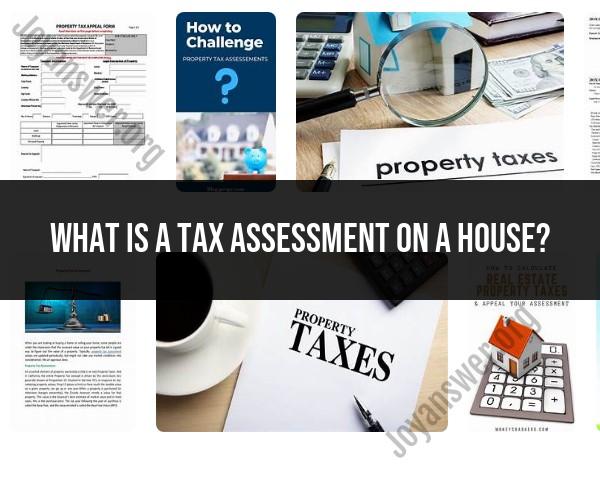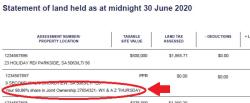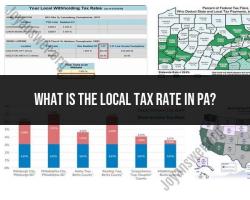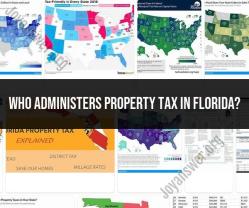What is a tax assessment on a house?
A house tax assessment refers to the process of determining the value of a residential property for the purpose of calculating property taxes. This assessment is typically conducted by a local government authority, often a municipal or county assessor's office. The primary objective of a house tax assessment is to establish the property's taxable value, which is used to calculate the amount of property tax that the homeowner is required to pay.
Key aspects of a house tax assessment include:
1. Assessment Authority:
- House tax assessments are typically carried out by local government agencies responsible for property taxation. The specific agency may vary by jurisdiction, but it is often the county or municipal assessor's office.
2. Valuation Methods:
- Various methods may be used to determine the assessed value of a house. Common valuation methods include:
- Market Value: The estimated price the property would fetch in the open market under normal conditions.
- Comparable Sales: Comparing the house in question to similar properties that have recently been sold.
- Cost Approach: Estimating the cost to replace the house with a similar one, minus depreciation.
3. Frequency of Assessment:
- The frequency of house tax assessments can vary by jurisdiction. Some areas conduct assessments annually, while others may do so less frequently. Regular assessments help ensure that property values are kept up-to-date.
4. Appeals Process:
- Homeowners generally have the right to appeal their house tax assessments if they believe the assessed value is inaccurate. The appeals process allows property owners to present evidence supporting their claim of an inaccurate assessment.
5. Tax Rates and Revenue Collection:
- Once the house is assessed, local governments apply a tax rate to the assessed value to determine the property tax owed by the homeowner. The collected property taxes contribute to local government revenue.
6. Use of Property Tax Revenues:
- Property tax revenues are used by local governments to fund various public services and projects, including schools, roads, public safety, parks, and other community needs.
7. Exemptions and Deductions:
- Some jurisdictions may offer exemptions or deductions that reduce the taxable value of certain properties. Common exemptions include those for homesteads, senior citizens, disabled individuals, or properties used for agricultural purposes.
8. Assessment Notices:
- Homeowners typically receive assessment notices that provide details about the assessed value of their house, the applicable tax rate, and the resulting property tax amount. This information is crucial for homeowners to understand their tax obligations.
Importance of House Tax Assessment:
- Equitable Taxation: House tax assessments aim to ensure that homeowners contribute to local government funding in a manner that reflects the value of their residential properties.
- Revenue Generation: Property taxes are a significant source of revenue for local governments, supporting essential services and community development.
- Fairness and Transparency: An effective assessment process promotes fairness and transparency in property taxation, ensuring that similar properties are taxed at similar rates.
Understanding the house tax assessment process is important for homeowners, as it directly impacts their property tax obligations. Property tax laws and assessment practices can vary, so homeowners should be aware of the regulations in their specific jurisdiction. Additionally, homeowners may have the opportunity to appeal their assessments if they believe there are errors or discrepancies.
Sure, here are the answers to your questions:
How is a house's tax assessment calculated?
A house's tax assessment is a formal evaluation of its fair market value for the purpose of determining its taxable value. This value is used to calculate the amount of property taxes the homeowner owes.
The specific method for calculating a house's tax assessment varies depending on the jurisdiction, but it typically involves considering several factors, including:
Property characteristics: The size, location, condition, and features of the property significantly influence its value. For instance, a larger house with more amenities in a desirable neighborhood will generally have a higher assessment than a smaller, older house in a less desirable area.
Comparable sales: Assessors analyze recent sales of similar properties in the area to establish a benchmark for the property's value. This approach involves comparing the subject property to comparable properties that have sold recently and adjusting for any differences in characteristics.
Cost approach: This method estimates the value of the property by calculating the cost of replacing the improvements on the land with new ones. This approach is particularly useful for older properties or those with unique features that may not have direct comparable sales.
Income approach: This method projects the potential rental income the property could generate and discounts that income stream to arrive at a present value. This approach is often used for commercial properties or rental properties.
Once the assessor has considered these factors, they will assign a value to the property. This value is the property's assessed value, and it is used to calculate the amount of property taxes owed.
What factors influence the tax assessment on a property?
Several factors can influence the tax assessment on a property. These factors can be broadly categorized into two main groups:
Property characteristics: These factors are inherent to the property itself and cannot be easily changed. They include:
Size: Larger properties generally have higher assessments than smaller properties.
Location: Properties in desirable neighborhoods or with access to amenities tend to have higher assessments.
Condition: Properties in good condition and with modern features typically have higher assessments.
Improvements: Properties with more amenities, such as pools, garages, or finished basements, usually have higher assessments.
Zoning: Properties in higher-value zoning categories may have higher assessments.
Comparable sales: The recent sales of similar properties in the area can significantly impact the assessment of a property. If comparable sales indicate that property values have increased, assessments may also rise.
Market conditions: The overall condition of the real estate market can also influence assessments. In a rising market, assessments may increase to reflect the higher values of properties.
Can a tax assessment on a house be appealed or challenged?
Yes, property owners have the right to appeal their tax assessment if they believe it is inaccurate or unfair. The specific process for appealing an assessment varies depending on the jurisdiction, but it typically involves:
Filing a formal appeal: Property owners must file a notice of appeal with the appropriate assessing or tax authority within a specified timeframe.
Providing supporting evidence: Property owners should provide documentation to support their claim that the assessment is inaccurate, such as appraisals from independent appraisers, records of recent renovations, or evidence of sales of comparable properties.
Attending a hearing: In some cases, property owners may have the opportunity to present their case at a hearing before an appeals board or assessor.
Negotiating a settlement: In some cases, assessors and property owners may reach a settlement that involves adjusting the assessment value.
If the appeal process is unsuccessful, property owners may have the option to further challenge the assessment through legal action. However, this option is often time-consuming and expensive.
It's important to note that appealing a tax assessment should be done strategically and with proper preparation. Property owners should carefully review their assessment, gather supporting evidence, and understand the appeals process in their jurisdiction before proceeding. Consulting with a tax professional or real estate attorney can also be helpful in navigating the appeals process.






